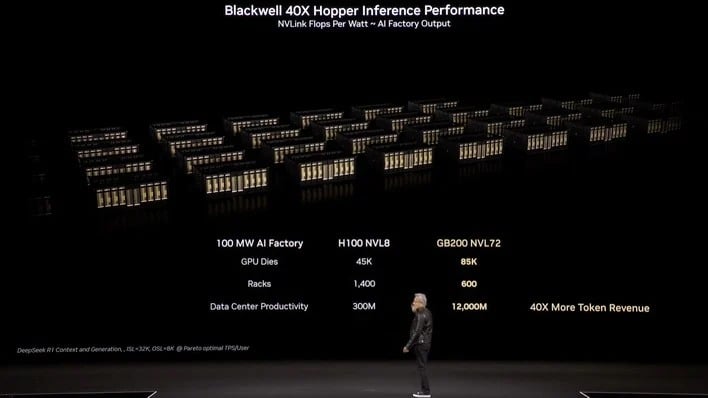Dinner With Jensen And Trump Eases NVIDIA GPU Trade Restrictions In China
NVIDIA's Hopper H20 has become a critical piece of the company's strategy in China, engineered specifically to comply with existing U.S. export restrictions while remaining performance competitive. Industry insiders expected the chip to be targeted next, especially after bipartisan calls for tighter controls earlier this year. In February, Senators Elizabeth Warren and Josh Hawley urged the administration to act following the debut of Chinese tech firm DeepSeek's advanced AI chatbot, which leverages chips like the Hopper H20.

The Hopper H20 GPU is increasingly vital to AI development in China, particularly for model inference tasks. Despite being throttled to meet export compliance thresholds, experts say it still outperforms any domestic alternatives. NPR quotes Chris Miller, a professor at Tufts University, as saying "China still can't produce the volume of chips it needs domestically." He goes on to call continued H20 access "a major victory" for Chinese firms.
That demand is already reflected in sales. In the first quarter of 2025, Chinese tech giants reportedly stockpiled $16 billion worth of H20 chips in anticipation of possible sanctions. Analysts see this as a hedge against an uncertain regulatory environment, especially given the Trump administration's broader restructuring of tech policy. The Bureau of Industry and Security (BIS), responsible for crafting and enforcing export rules, has also seen delays due to staffing cuts and leadership exits.
The about-face on NVIDIA's H20 chips reflects ongoing tensions between national security concerns and economic interests in the U.S.-China tech rivalry. While the Trump administration has moved to dismantle Biden-era semiconductor policies—redirecting CHIPS Act responsibilities to a new investment office—NVIDIA's maneuvering may offer a blueprint for how leading tech firms can influence trade policy through strategic concessions.


